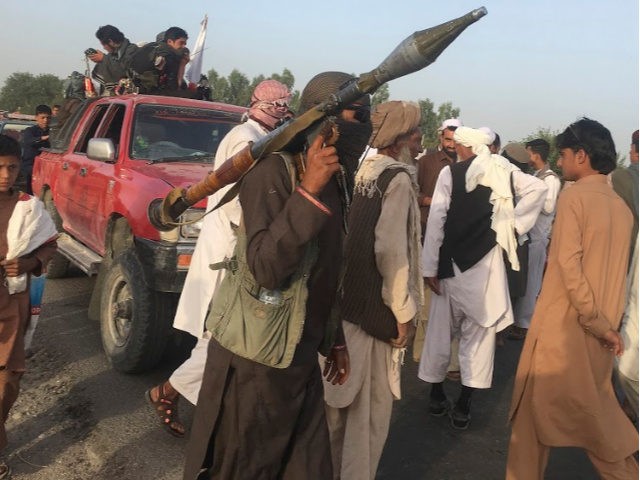Beijing believes the Taliban is a “political force” that must be allowed to “play a legitimate role” in a negotiated “political settlement” to end the war plaguing Afghanistan for more than 17 years, the Chinese ambassador in Islamabad declared this week.
China’s support for a “political settlement” between the Taliban and the Afghan government is consistent with U.S. President Donald Trump’s policy of making the “political reconciliation” between the terrorist group and Kabul the primary tenet of its strategy to end the war.
Under Trump, the U.S. has also expressed support for Afghan President Ashraf Ghani’s olive branch offer to the Taliban of a ceasefire and recognition as a legitimate political group, a move that would effectively grant the terrorist organization a chance to return to power in Kabul. U.S. troops ousted the Taliban regime from Kabul in December 2001, soon after invading the country in October of that same year.
When asked about China’s “apparent lack of eagerness” in the ongoing Afghanistan peace negotiations during a discussion at the University of Peshawar in Pakistan on Tuesday, Chinese Ambassador Yao Jin indicated that “his country had contacts with both the Taliban and the Afghan government,” Dawn reported.
“China will pick them [Taliban] as a political force because they are now part of the Afghan political process and they have some political concerns. They have to be allowed to play a legitimate role in the future political settlement,” he said.
“If possible, China can exert pressure on the Taliban to join the peace process,” Jin also said, adding, “Afghans have been suffering for the last 40 years and they deserve peace and stability.”
The Chinese ambassador praised its ally Islamabad for facilitating talks between the Taliban and the Trump administration and suggested China supports the negotiations.
Pakistan has taken credit for at least one of the recent meetings between U.S. officials and the Taliban, a testament to the influence Islamabad holds over the terrorist group. The Trump administration has intensified efforts to negotiate peace with the narco-jihadi group in recent months.
China shares a border with Afghanistan and the portion of Kashmir controlled by Islamabad, which is separate from mainland Pakistan. Kashmir is a Muslim-majority Himalayan region claimed by China, Pakistan, and India.
Beijing has expressed concern about jihadi violence spilling over into its side of the border.
Chinese Uighur jihadis linked to the Taliban and al-Qaeda are known to train and operates in the Afghanistan-Pakistan region, which the Pentagon believes is home to the highest concentration of terrorist groups in the world.
“When we look towards [the] west, the immediate challenge for us is Afghanistan having many international terrorist organizations,” the Chinese ambassador noted.
“We are very much hopeful about a peaceful settlement of the Afghan issue, but this is a very complicated issue, which requires a lot of patience,” he added.
Despite U.S. insistence, the Taliban continues to refuse to talk directly to the Afghan government, dismissing Kabul as an American “puppet.”
The Taliban considers itself the legitimate government of Afghanistan and is fighting to implement strict Islamic laws, or sharia, across the country.
Taliban narco-jihadis generate most of their funding, estimated in the hundreds of millions, from trafficking and cultivating opium and its heroin derivative, a small portion of which is fueling the unprecedented fatal drug overdose epidemic in the United States along with the synthetic opioid fentanyl from China.
While the Pentagon has repeatedly accused Pakistan of harboring the Taliban and its allies, Beijing has come out in defense of Islamabad, arguing that Pakistan is taking action against terrorism.
In February 2018, a top Pentagon official told American lawmakers the U.S. is promoting cooperation with China in Afghanistan, particularly when it comes to fighting terrorists.
Maulana Samiul Haq, a renowned Pakistani cleric known as the “Father of the Taliban,” called on China in October 2018 to serve as an “arbitrator” in the ongoing peace negotiations.
Several efforts to achieve peace in Afghanistan have failed, including some involving China.
As part of the Quadrilateral Coordination Group (QCG) that also included the United States, Afghanistan, and Pakistan, Beijing played a role in failed efforts in recent years to convince the Taliban to engage in face-to-face peace talks with U.S.-backed Kabul.

COMMENTS
Please let us know if you're having issues with commenting.